The signs of emotional invalidation in a relationship can be brutal to deal with and leave you grappling with wounds and scars that take a long time to heal. That’s been my experience with my ex-boyfriend, Rory, who made it a habit of telling me I was becoming difficult to be with every time I shared my feelings or expressed my needs.
After one particularly nasty fight, he said I need to figure out a way to “overcome my struggles” if the relationship was to have any future. His idea of supporting me through these said struggles was to hand me a list of movies on mental health. He suggested I binge-watch them over the weekend. Thank goodness I started with Midsommar because that movie was like a mirror of our relationship. I had lived through all the emotional invalidation examples in that movie with Rory.
“Everyone has issues.” But to hear someone you love say this every day as an attempt to belittle what you feel can be excruciating, especially when you’re already going through a rough patch. How does one deal with something so gutting? What is the correct way to respond to emotional invalidation? Is it okay to continue being with someone who has a pattern of invalidating feelings? These were some questions I grappled with during and after our relationship, as I’m sure a lot of people, who’ve experienced something similar in theirs, do.
To gain more perspective on emotional invalidation in marriage and romantic relationships, I talked to psychotherapist Dr. Aman Bhonsle (Ph.D., PGDTA), who specializes in relationship counseling and Rational Emotive Behavior Therapy. It helped me gain a better understanding of myself and my past relationship, and I hope it helps you navigate yours.
What Is Emotional Invalidation?
Table of Contents
Emotional validation means acknowledging another person’s emotions, even if you don’t agree with how they feel. It’s saying, “Your feelings are valid”, not just through your words but also your actions. Emotional invalidation is exactly the opposite of it. Dr. Bhonsle describes invalidating feelings in a relationship as:
- The act of rejecting, mocking, dismissing or ignoring someone’s emotions
- It can be verbal or non-verbal, leading to silent treatment abuse
- It could be done innocently when the person invalidating another’s feelings doesn’t realize the power of their actions or words, or when there are cultural differences. Or it could be done intentionally as an act of insecurity, revenge, manipulation, or to fit social stereotypes
- People who have difficulty processing their own emotions may end up resorting to invalidating feelings in a relationship as a defense mechanism
- When done chronically, it can amount to abuse
Dr. Bhonsle says, “Even when there is a difference of opinion, open dialogue and affirmation demonstrate respect for another person’s uniqueness and the right to make decisions.” Emotional validation in relationships preserves the balance of power in a partnership and fosters a sense of satisfaction, joy, and connection, and dismissing feelings does exactly the opposite.
23 Signs Of Emotional Invalidation In A Relationship
We cannot deny that we live in a society where signs of emotional invalidation can be seen easily and everywhere, especially—and ironically—in our most intimate connections.
- Expressing emotions is seen as a disability in an emotionally crippled society
- It is not surprising that many people take pleasure in denying emotional validation because they have been conditioned to find the expression of feelings distressing or even shameful
- In some cases, the invalidation results from the person struggling with their own issues and being so exhausted that they are unable to offer emotional support
- Or the individuals are too self-absorbed to put the other’s emotions front and center
So, how do you know if your feelings are being invalidated in a relationship? Here are a few common signs your partner is dismissive of your feelings:
1. Your partner undermines your pain — “It’s not the worst”

While it’s done mostly unintentionally, it still feels hurtful when your partner undermines your struggle by mocking it, shrugging it off, or belittling you. This is one of the most common examples of unintentional emotional invalidation and is often observed in partners who come from drastically different backgrounds. A major reason behind this is the conditioning that one receives, which makes a valid issue like being bullied at school a laughable matter for someone else. They might do it:
- When they want to suggest your problem is not significant — “Get over it already. It’s not a big deal”
- When they find your issues funny because it’s an alien concept for them — “And you started crying over it? Ha ha ha”
- When they dismiss your emotions as a result of your sexuality — “You are such a Nancy Pants/floozy/pansy”
2. They dismiss your emotions — “You overthink everything”
One of the worst signs of emotional invalidation is when your emotions get dismissed only because you’re attuned to your thoughts and feelings, and your mate isn’t. This disparity in how partners in relationships process emotions is one of the most common relationship problems. Your partner may:
- Declare your empathy as a handicap — “Stop saying, ‘My boyfriend disregards my feelings!’ You are too sensitive”
- Identify your emotions as a “quirk” of a community — “You women/GenZ people/rural people”
Related Reading: Expert Advice – When To Call It Quits In A Marriage
3. They compare your pain with others — “Think of the people in Ukraine/Palestine/Iraq/Nigeria”
Even though a device that could measure someone’s emotional pain hasn’t been invented yet, people often tend to compare the degree of hurt as if it is quantifiable. While it’s true that someone from a war zone would have a much more complex experience of trauma as compared to someone trying to cope with a breakup, it’s unfair to compare the two. Not only is it not helping any of the war-afflicted people, but it also makes everyone else stifle their emotions too. Besides, such comparisons never justify when and how it’s acceptable to grieve. You may also observe your partner:
- Hogging sympathy — “I know what you’re feeling. When my father died … (goes into a 20–minute monologue)”
- Making themselves an inspiration for you — “I had it ten times worse than you, yet here I am”
- Comparing you with a person they know you hate — “I’m sorry for you, but you know what Karen did when she had this problem …”
4. They try to lighten the situation with toxic positivity — “At least you have this”

Another common way your partner may unintentionally invalidate your emotions is by trying to cheer you up with toxic positivity and humor. Optimism is good, but like everything else, too much of anything can be dangerous. This is one of those signs your partner is dismissive of your feelings that you’re very unlikely to observe because it hides in plain sight.
Dr. Bhonsle says, “You should avoid joking about things that can trigger your spouse. Humor can be highly subjective. While people you’ve been around for a long time may find certain jokes funny, it can be upsetting or triggering for other people. At the same time, if your partner cracks jokes that hurt you, you should communicate your displeasure to them.” They may try to “brighten” the situation by:
- Suggesting support — “Why are you worried about being laid off? I earn enough for both of us”
- Excusing it as part of the process — “Guess this is part of being parents, eh? We’re lucky”
- Leaving no room for an alternate thought process — “You have such an amazing family. What else do you need?”
5. They try to appropriate your emotions — “You shouldn’t feel this way”
Dr. Bhonsle says, “Your partner could be doing this unintentionally, but this is often the case when they don’t want to open their mind to the possibility that you may have a different way of expressing emotions than theirs.” The worst part is that your partner may not even rarely realize that they are hurting you by:
- Suggesting a replacement for your emotion — “I don’t think you’re angry. Maybe you’re just hungry?”
- Encouraging you to stifle it — “It’s no good thinking about it”
- Dismissing your expression of emotion altogether — “You don’t look sad”
Related Reading: Is Guilt-Tripping In Relationships A Form Of Abuse?
6. They suggest you’re doing it for attention — “Do you even want to get better?”
When your partner lacks the same emotional range as you or is skeptical of emotional responses, they frequently interpret your display of emotions as a plea for attention. When this happens, you may often find it difficult to share what you feel with them. They invalidate you by:
- Suggesting that you like to make a spectacle of your emotions — “Don’t make a scene here,” “You’re so dramatic,” or “Why do you have to bring it up now?”
- Targeting your need for people who support you — “Save your tears. No one is here to see you”
- Suggesting that you can control your emotions in a relationship easily — “I’m sorry you’ve chosen to feel this way” or “Stop overthinking/being anxious/being worried”
- Suggesting that it is a plea for their attention — “I work so hard every day. I’m sorry that I don’t have time for you”
7. They encourage you to forget your experience instead of recovering from it — “Just let it go”
Any kind of traumatic experience activates flight, fight, freeze, or fawn responses in an individual. There is no “forget” response. The human brain may activate detachment, which is part of the freeze response. But even in that scenario, a person needs to healthily process their emotions to recover from the trauma. As suggested by a study, forgetting or trying to bury emotions can end up amplifying them. You may observe in your partner:
- An apathy toward healthy processing of emotions — “Suck it up”
- A tendency to hide everything — “Let’s not talk about this”
- Attempts to close the issue — “What’s done is done. We can’t do anything about it. Let’s forget it”
8. They justify everything through a rigid moral compass — “God’s will”
Human beings have always used a deity, religion, or morality to justify their hardships. Belief in God or being part of a community can be a support system for many, but justifying someone’s adversity may not be a good idea. Dr. Bhonsle says, “Religious beliefs should never be the excuse for invalidating your partner’s feelings. Not everyone may have the same beliefs, and not everyone may feel calm after hearing such statements.” You may observe signs of emotional invalidation when people:
- Bring Karma into the picture — “Everything happens for a reason”
- Suggest that your current experience doesn’t matter — “God doesn’t give you more than you can handle”
- Get dogmatic — “Pray to <insert God’s name> and everything will be fine”
Related Reading: Feeling Unwanted In A Relationship – How To Cope?
9. They suggest you’re faking it — “I’m sure it couldn’t have been that bad”
Emotional invalidation in marriage and romantic relationships can occur when one of the partners has difficulty believing the other. This often happens when one of the partners has very low self-esteem. This may also take the form of gaslighting in relationships when done intentionally. Your partner may:
- Doubt your narratives — “Are you sure that’s what she said?” or “But why would she say that?”
- Suggest your incapability to perceive events — “Were you wearing your glasses?”
- Present a previous incident to invalidate you — “You said this last week too. How am I supposed to believe you?”
10. They gaslight you — “That’s not how it happened”

When people want to invalidate you on purpose, they are doing it to make you mimic the behavior they deem fit. A signature step of gaslighting is that they often twist narratives to make it appear that something else happened. They do it by:
- Suggesting that you are not capable enough to judge the reality — “You have been under a lot of stress lately” or “You’ve misunderstood completely”
- Making you responsible for their invalidating behavior — “You looked like you were going to cry in front of everyone. What other option did I have except to leave the party?”
- Isolating you from other people — “Your friends laugh at you”
11. They may guilt you — “Why can’t you be happy for once?”
I was raised by an emotionally unavailable mother. I was never comfortable talking to her over the phone, where she guilted me for not visiting her enough. Rory would often dismiss my anxiety about meeting her. This was cruel, not just because I was already struggling to deal with my feelings for her, but because Rory’s lack of empathy made it difficult for me to talk to him about it. Shortsighted partners often:
- Guilt you like Rory did to me — “At least your mother is alive. Mine is dead”
- Make you feel isolated in a group — “Enjoy! Everyone has come for you” (sarcastically)
- Have difficulty in empathizing — “Postpartum depression? You feel depressed because of these beautiful kids?”
12. They try to shame you — “What were you wearing?”
Apathy is one of the most common signs of emotional invalidation. Often, when a couple finds it difficult to connect emotionally, one partner may become apathetic toward the other. For instance, if your wife or husband ignores you sexually, they may try to shame you for your sexual desires or libido. It could be a warning sign of a controlling husband or wife. Or in a much worse situation, if someone sexually abuses you, your partner may assume your complicity. They may also:
- Occupy a position of moral righteousness — “I work like a slave, but you can’t control your lust”
- Suggest you consented to the abuse — “Did you give them any signals? Or “Everyone seems to have a thing for you”
13. They pretend to support you — “It’s better this way”
Another way partners emotionally invalidate you is by pretending to support you. The ability to distinguish between support and solution is a valuable trait.
- They say that they’re there for you, but they rarely ever listen to what you say. Instead, they give solutions when you say you don’t need them
- They, sometimes, hide things from you — “I’m trying to protect you”
- Sometimes, their support can be crippling because you begin to doubt yourself — “Are you sure you’re up for it?” (asking this repeatedly)
Related Reading: 7 Signs Of Loneliness In A Relationship And How To Cope
14. They take action on your behalf — “You’ll thank me later”
Taking action on someone’s behalf, especially when they don’t ask for it, is not just disrespectful but also cripples their agency. If your partner takes certain actions on your behalf, you will notice:
- A pattern of ignoring your wishes. This is often accompanied by a tone that sounds disappointing or doubtful, making it appear that you’re going back on your words — “I thought YOU wanted this”
- A suggestion that they’re doing you a favor — “I’m trying to help you” or “It’s for your own good” or “You’ll never get this done without me”
15. They avoid responsibility — “I’m too tired for this sh*t”

This pattern is commonly observed when one of the partners tries to shut themselves in because they find it difficult to deal with their partner’s emotional needs. Though unintentional, this may be used as a defense mechanism to avoid emotional responsibility in relationships. There is:
- Tendency to absolve their guilt — “It’s not my fault. I have been working too hard all day”
- Self-fixation every time you bring something up — “I don’t feel so good. Can we talk later?”
- A pattern of ignoring you and telling you something they think is more important — “Yeah, right. Did you hear this …?”
16. They exact revenge — “How do you like the taste of your own medicine?”
Dr. Bhonsle says, “A vindictive partner can be manipulative and can show passive-aggressive behavior in relationships. This can also become apparent when they reject your emotions because they feel the need to punish you for something you did.” This can be frustrating because:
- They may side-step the issue entirely — “It’s just stitches. Why are you screaming? I didn’t scream that loud when I gave birth to your child”
- They bring up an earlier resolved argument — “I wouldn’t know how to help you with financial matters since, like you said one day, I’m just sitting at home all day” or “You never said anything when I had to go through a lay-off. Why do you expect me to comfort you?”
- They exact favors from you — “You need my shoulder to cry on. You know what I need … <touches you on your thigh>”
Related Reading: 11 Lovely Ways To Date Your Spouse – Spice Up Your Marriage
17. They distrust you — “How do I believe you after that incident?”
People who are struggling with addiction or mental illnesses often have to face this scenario. Their partner may express disbelief or dismissal of their experiences. This disbelief grows stronger after repeated incidents of lapse. Sadly, the distance between partners widens with time as each finds it difficult to trust the other. This occurs frequently as follows:
- They question your reliability — “Were you drinking?”
- They confirm it from another person in front of you
- They make it a burden — “I just wish you’d stop doing this to me”
18. They downplay your triggers — “Clowns are not scary, they’re funny”
Another one of the classic signs that signs your partner is dismissive of your feelings is that they downplay your triggers. It can be cruel when your partner mocks you, says hurtful things, or questions your triggers, whether done intentionally or unintentionally. This happens often when there is a lack of understanding of how phobias/trauma work. You may see:
- A pattern of mocking you for what they consider normal — “Oh, so you’re scared of the color yellow? Maybe I should go blonde”
- Resentment for what they consider entitlement — “Trypophobia, huh? Did your personal chef bake bread with no holes?”
- Tendency to ignore it when you get triggered — “Learn to take a joke”
19. They force you into unpleasant situations — “No pain, no gain”

The worst thing your partner can do to you is force you into unpleasant and uncomfortable situations in the name of “acclimatizing” you. While research suggests that behavior can be modified when you face a particularly unpleasant situation, facing it on your own terms and being pushed into it are two different things. Being forced into something can aggravate the trauma and make things worse. How do you know if your feelings are being invalidated?
- They purposely push you into intense situations — “How will you overcome agoraphobia if you don’t go out?”
- They mock you — “See, even little kids are using the elevator. It just takes 20 seconds”
- They act hurt if you’re unable to cope with the stress — “I’m trying to help you, don’t you trust me?”
20. They suggest you fake it — “Of course, you have a headache now”
My ex, Rory, had this absolutely horrible way of pronouncing my migraines as something I “invented” to punish him. He would refuse to believe that migraines lasted more than a few days. He was convinced I was sulking because I wanted to refuse his “help”. He had no idea how to deal with dating someone with anxiety. Long story short, it was not unusual to hear:
- “How do I even talk to you without triggering your headaches?”
- “So, you can work with a headache, but not have sex”
- “Don’t tell me what to do. I’m gonna get myself a headache”
21. They say the right words with the wrong tone
You may observe that your partner uses the right words, but their tone is off and you can clearly pick up on the lack of empathy and support. You may notice:
- Mocking or sarcastic tone
- Certain comments are spoken in dramatic asides
- Lack of color in their voice. It’s almost as if they’re repeating words they read somewhere and not speaking them from the heart
Related Reading: 8 Ways To Cultivate Emotional Safety In Your Relationship
22. Non-verbal signs of emotional invalidation
Many times, it’s not what they say, but what they do. Uncaring partners often suggest apathy through body language cues. This list includes, but is not limited to:
- Facial cues: Rolling eyes, sighing, pinching lips, raising eyebrows
- Body language cues: Turning away from you, looking at their phone while you’re speaking, nodding at you but looking at something else, getting distracted by something on your clothes, fidgeting, etc.
- Avoiding physical presence: Your partner ignores you for days or stays in a different room. They maintain a distance between the two of you
23. Negative changes in your behavior
Gradually, if this continues, you or the people around you observe marked changes in your behavior. What’s noteworthy is that neither you nor the people around you are comfortable with these changes. A major result of your partner invalidating you is that your self-esteem is badly impacted and you begin to show signs of low self-esteem behavior. The following changes may be visible in your personality:
- You begin to feel anxiety about sharing anything with anyone
- You begin to downplay your issues to the extent that it becomes a norm. The idea that you’re hurting becomes so alien that you are surprised when other people acknowledge your feelings
- You begin to develop extreme behavior and go hot and cold on people. You feel dejected and low at times, while energetic and motivated at others
- You become doubtful about your narrative. You begin to compile ‘evidence’, such as screenshots, in case someone doubts you. Especially when you’re gaslit. Another symptom observed from this behavior is that you begin to overexplain yourself to assure your reliability
- You become scared of meeting new people and are constantly afraid that they will judge you
What Are The Effects Of Emotional Invalidation In Relationships?
Emotional invalidation can be detrimental to the mental health of the person at the receiving end. Dr. Bhonsle says, “Expressing emotions is a way in which our subconscious communicates with our conscious. When your partner ignores your feelings or suggests that they don’t matter, it creates confusion and may do greater harm if adequate attention is not provided.” The effects of emotional invalidation in relationships include:
1. Psychological damage
According to a study, persistent emotional invalidation can predict the onset of depression. In addition to causing feelings of loneliness, worthlessness, perplexity, and inferiority in the affected person, invalidation frequently causes emotional distance, conflict, and interpersonal breakdown.
- It may affect a person’s capacity to control their own emotions and behaviors, making them feel uncomfortable in a social setting
- It compromises one’s sense of self and worth, resulting in emotions of rage, remorse, shame, and worthlessness
- According to a study, when a partner ignores you or dismisses your feelings, it can also impair your daily functioning and increase their risk of developing psychiatric disorders such as anxiety, post-traumatic stress disorder (PTSD), and borderline personality disorder (BPD)
Related Reading: How Borderline Personality Disorder Impacts Relationships
2. Making you question your reality
When your feelings are invalidated by your partner, it brings on the perception that your emotions are irrational, inappropriate, or unimportant. It can create a disconnect from their true selves. It has been discovered that invalidation frequently causes a rise in secondary emotions like wrath and shame by preventing the expression of primary emotions like melancholy. According to research, individuals who already struggle with emotion regulation often respond more violently when their grief is not acknowledged emotionally.
- Emotionally sensitive people are more affected by emotional invalidation
- Emotional dysregulation may result from being taught that one’s emotional reactions are wrong and unnecessary
- This can lead to a loss of self-worth and separates people from the truth that they matter and belong to the world around them
- It can make them constantly doubtful of what they know and their capability to perceive things around them
3. Lasting trauma
Everyone can be affected by the repercussions of invalidation, regardless of age, gender, or culture, but children are the most vulnerable. Since their awareness and comprehension of the world are still developing, invalidation leads to pervasive feelings of insecurity. This can affect how they express their emotions.
- According to a study, invalidation by peers and family members was found to increase the risk of suicide events or occurrences of self-mutilation in teenagers
- Another study demonstrated how emotional invalidation throughout childhood and adolescence can lead to emotional suppression. It often leads to psychological issues in later years, especially in the form of depressive and anxiety-related symptoms

How Do You Respond To Emotional Invalidation?
Recognizing emotional invalidation in your relationship, when you’re in the thick of it, and taking action to protect yourself is not easy. I was struggling with the loss of my father, and hearing Rory snort or sigh because I was quiet or crying didn’t help. I’d avoid any situation that could trigger me. Later, I started to anticipate how he’d react and began to do things that would make him happy.
Chronic emotional invalidation can cause trauma in people, activating their fight-flight-freeze-fawn response. You could enter a perpetual survivor mode, which can take its toll on your mental health in the long run. That’s why, if you could relate to the signs your partner is dismissive of your feelings, it’s imperative that you take measures to safeguard your emotional well-being. Here are 5 tips on how to respond to invalidation from a partner:
1. You need to implement containment and boundaries
In his book, The Invisible Line, psychologist Benjamin Fry discusses the role of confinement and boundaries to ensure and advance our well-being. According to Fry, containment refers to how we control our responses to any situation, while boundaries work to decrease the influence of those stimuli on our emotional and psychological well-being. When containment and boundaries are used effectively, they can help a person handle emotional invalidation.
- Try grounding techniques to practice containment. Focus on the environment around you, focus on its details, focus on how those details are getting fed to you through different senses
- Learn to say no to establish healthy boundaries in relationships. If you think a situation might trigger you, withdraw from it till you are comfortable enough to face it
Related Reading: How To Love Yourself In A Relationship – 21 Practical Tips
2. You need to practice self-validation
You need to understand that you can’t depend on other people’s validation. Not only does it make you dependent on external stimuli to activate joy triggers, but it can also lead to lowered self-esteem. You need to be able to tell yourself and accept that your feelings are valid, without needing validation from someone else, including your significant other. Self-validation can include acknowledging yourself and your needs, being patient with yourself, and learning to live with your flaws.
- Maintain a journal. Write your personal goals and write whenever you do something to move toward these goals
- Identify your issues. You can try to work on these issues, but if you can’t, learn to make peace with them
- Whenever you feel negative, remember to say, “It’s okay.” Give yourself the pep-talk you need
- Don’t focus on trying to change others to validate yourself. We can’t tailor others’ behavior to suit ourselves. If you are living in perpetual abuse, then it’s time to move on
3. You need to call it out

If your partner frequently invalidates you, whether intentionally or unintentionally, call it out. They’ll be surprised, disappointed, or even angry at first, but you need to tell them that it’s hurtful to you.
- Identify the behavior you find invalidating. Tell them immediately
- You need to stand your ground. Manipulative partners are very good at victimizing themselves. So learn to have a clear understanding of the issue
- Suggest a break, if it gets worse. Your partner may object to this but you need to tell them how to deal with taking a break in a relationship
4. Be the change yourself
Emotional invalidation in marriages and romantic relationships is more common than we think. It is often considered benign or treated as a joke. Chronic emotional invalidation is neither. It’s possible that you may have invalidated your partner’s emotions at some point. Learn to empathize and take their words seriously.
- Use affirmative language with each other. Use words like “It sounds frustrating” instead of “Stop whining”
- Observe your partner. A person who is constantly emotionally invalidated is always on their toes
- Talk to them in earnest. Connect with them and ask them if there is something about your behavior that bothers them
- In Midsommar, Dani was constantly scared of being abandoned by her boyfriend. This is a common fear among all those who bear emotional invalidation without complaining about it. Tell your partner you are there for them for better and for worse
Related Reading: 9 Expert Tips To Grow In A Relationship Every Day
5. Don’t shy away from expert help
Once the realization hit that I was being invalidated, I told Rory that I wanted a break. Unsurprisingly, he started calling it a ploy to break up with him, but I stood firm. On a friend’s suggestion, I decided to take therapy. That proved to be one of the best decisions of my life.
- Take your time getting in touch with your emotions. Mindfulness is important if you want therapy to work
- Find the right therapist for your needs. At Bonobology, we have an excellent panel of therapists and counselors for all your mental health needs
FAQs
1. Is invalidation a form of emotional abuse?
Yes, chronic emotional validation is a form of emotional abuse. Invalidation can cause a person to question their reality and doubt themselves. If your partner frequently ignores your needs, then it can trigger survival mode, leading to a constant state of arousal and impacting both physical and mental health.
2. How do you deal with people who invalidate you?
If you identify signs of emotional validation in your relationship, call it out as soon as you can. Express how your partner invalidating feelings makes you feel. Practice self-validation and set healthy boundaries. If despite it all, your partner doesn’t change their behavior, take a break from them.
Key Pointers
- Emotional invalidation is when your partner ignores your feelings, and mocks or rejects your emotional needs
- Your partner may ignore your needs either intentionally or unintentionally. They may either use words that communicate indifference or rejection or use nice words but a sarcastic or indifferent tone
- You may also notice body language or facial cues like moving their body away from you or eye-rolling
- Chronic emotional invalidation may result in trauma, leading to psychological distress
- To respond to invalidation, you need to self-validate your feelings and practice healthy boundaries
Final Thoughts
It’s a common belief that people in relationships are supportive of each other, and invalidation occurs intentionally only. Unfortunately, individuals frequently don’t realize that they could be invalidating their partners unintentionally. They either treat it as an effort to “help” their partner get over a difficult experience, or they fail to sympathize.
People also invalidate emotions because of their discomfort at having their own unprocessed emotions triggered by their partner’s emotional display. In all these cases, the common thread that remains is that invalidation can lead to intense psychological distress. If you notice any signs of emotional invalidation in your relationship, take a step now and help build a better relationship for yourself.
Your contribution does not constitute a charitable donation. It will allow Bonobology to continue bringing you new and up-to-date information in our pursuit of helping anyone in the world to learn how to do anything.

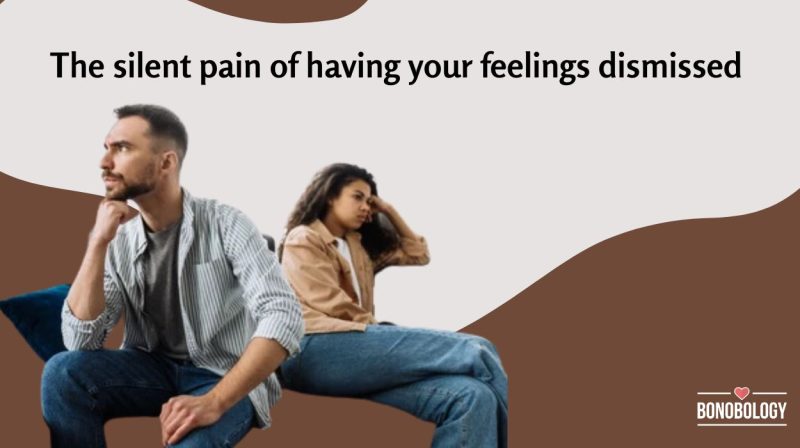

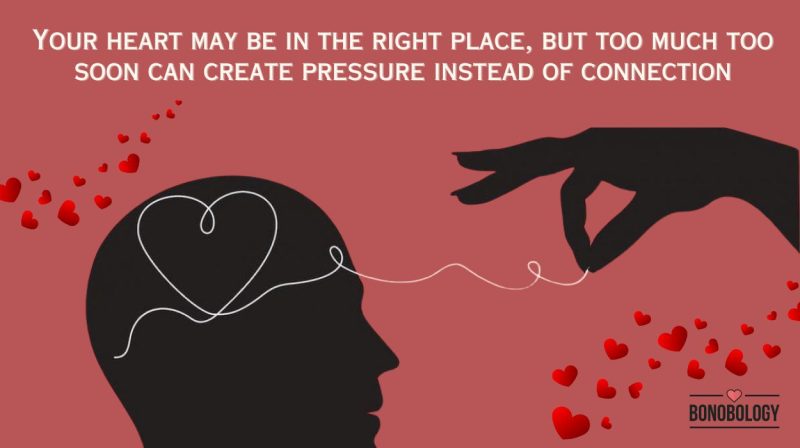

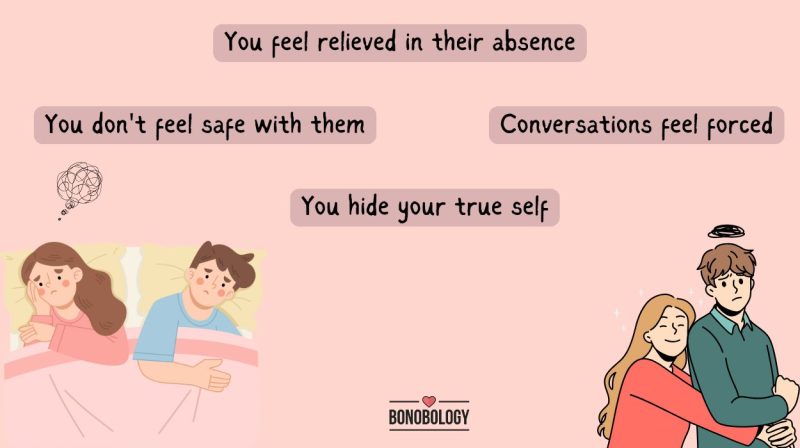




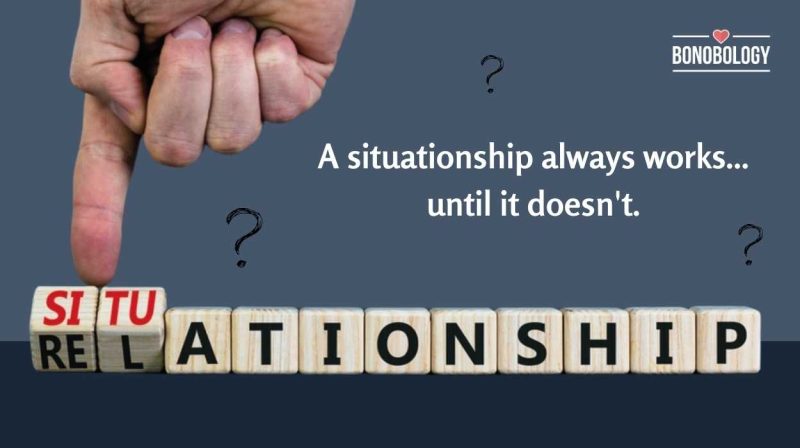

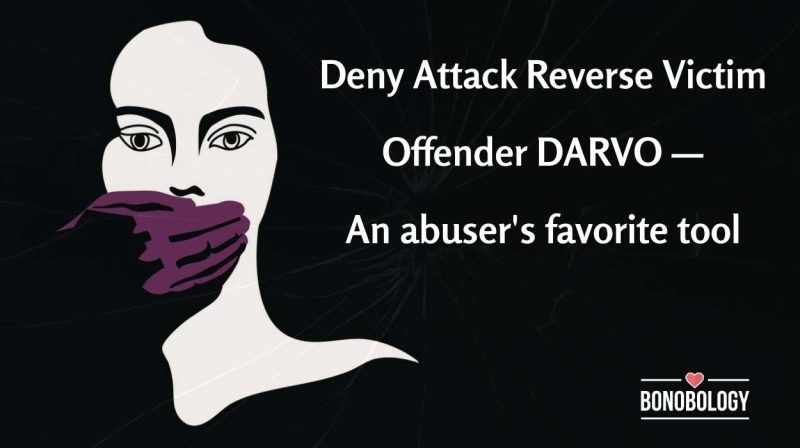
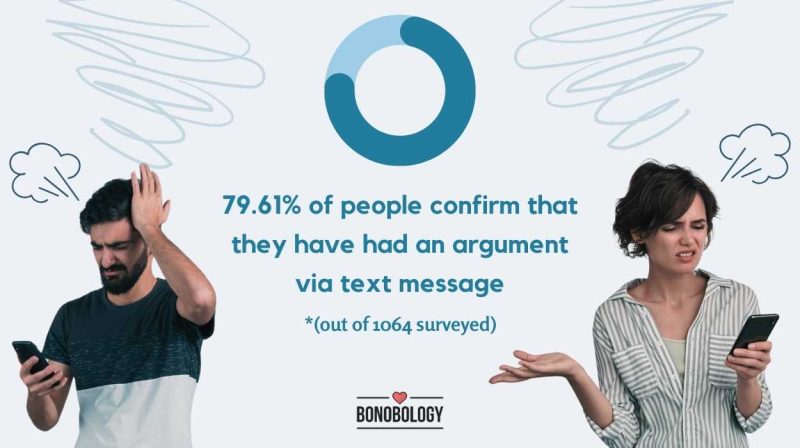
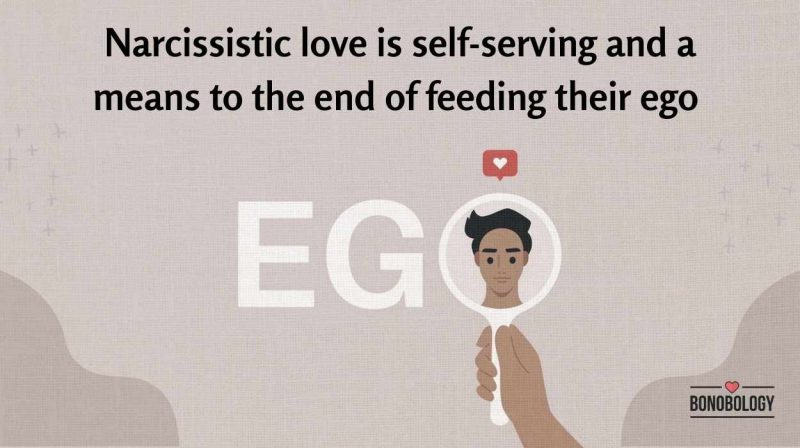
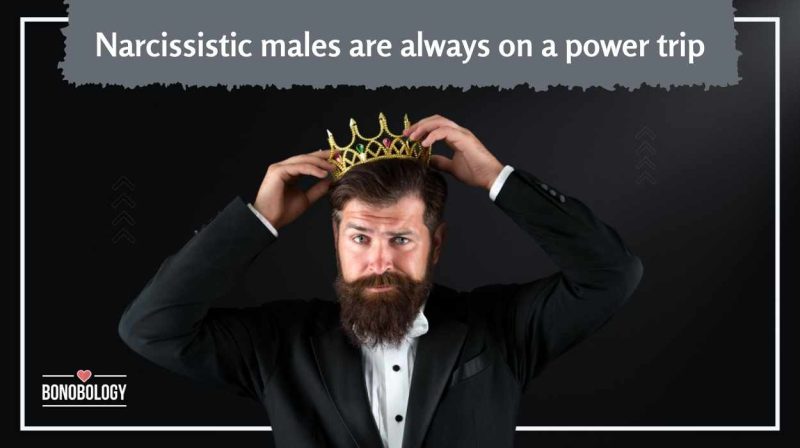
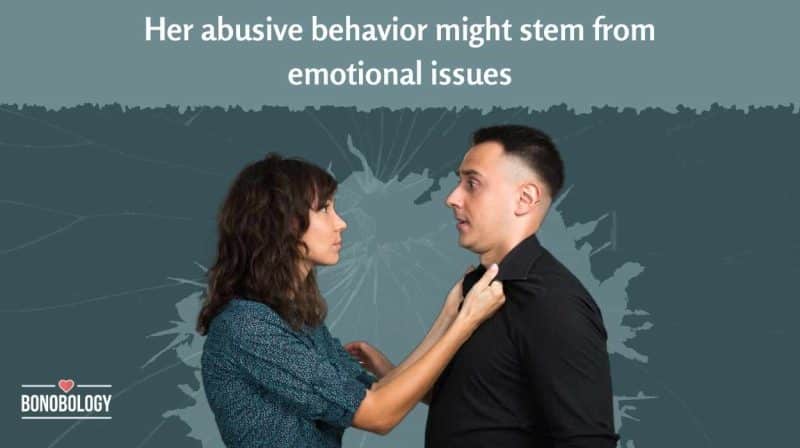
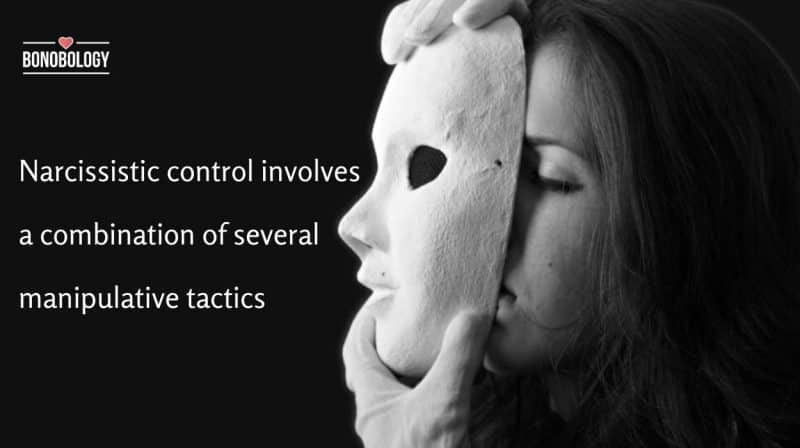
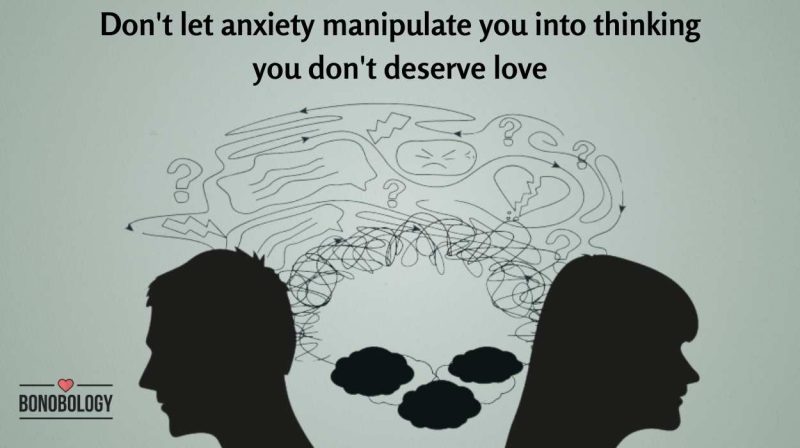


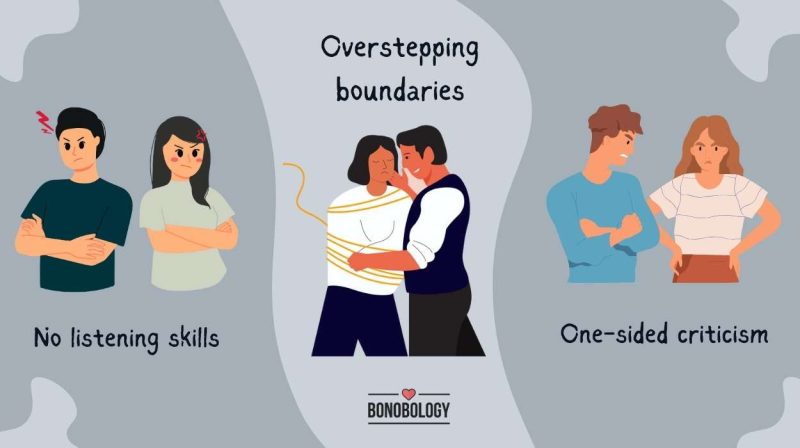
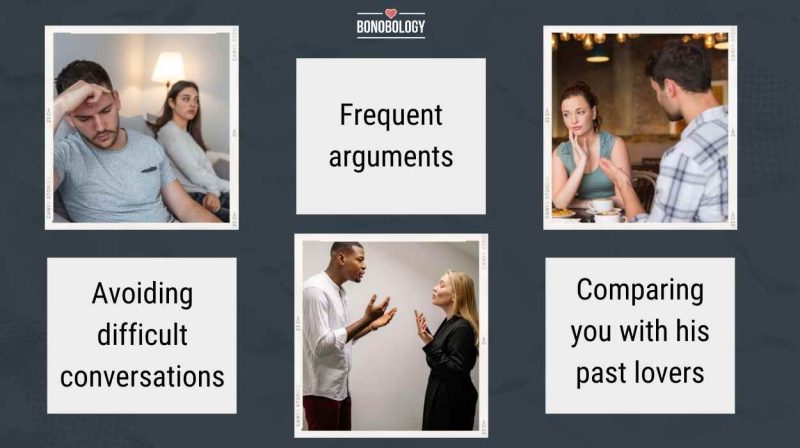
Featured
Unintentional Love Bombing: 9 Ways You May Be Overwhelming Your Partner
13 Signs Of A Hot And Cold Relationship & How To Break The Pattern
21 Subtle Signs You’re Not Really In Love With Your Partner
I Hate My Girlfriend: Why You Feel This Way And What To Do
When Health Challenges Affect Your Relationship Dynamics
5 Harsh But True Signs He’ll Never Marry You
21 Signs That You Are Alone In A Relationship
11 Situationship Red Flags You Should Know About
Why Do I Get Attached So Easily? 9 Possible Reasons and Ways to Stop
How To Respond To DARVO: Expert Lists 7 Strategies
What Is Fexting, And Why Is It Bad For Your Relationship?
Are Narcissists Capable Of Love?
11 Prominent Male Narcissist Traits to Watch For
Why Does My Girlfriend Hit Me? Expert Shares 11 Possible Reasons And Ways To Cope
How Does A Narcissist React When They Can’t Control You?
“My Anxiety Is Ruining My Relationship”: 6 Ways It Does And 5 Ways To Manage It
13 Distinctive Traits Of Female Narcissists Revealed
Recognizing The 13 Red Flags Of A Controlling Relationship
What Are The Examples Of Narcissistic Behavior In A Relationship?
11 Signs He Is Forcing Himself To Love You